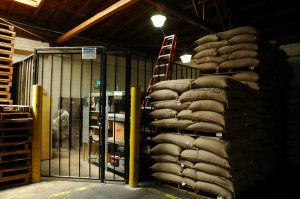California fines AmerisourceBergen for not flagging suspicious opioid orders.
The California Board of Pharmacy fined AmerisourceBergen for shipping “excessive amounts of opioids and other controlled substances to pharmacies.” The company was also cited for “failing to report suspicious orders” to state regulators. In the five-year span from 2010 through 2015, two facilities in Corona and Valencia, California, sold large quantities of addictive pain medications such as oxycodone, Norco (acetaminophen and hydrocodone), Phenergan with codeine syrup (a narcotic and cough suppressant), and other medicines to several different pharmacies.
The distributor sold excessive amounts without reporting suspicious orders, according to the Drug Enforcement Administration (DEA), and also failed to ensure that the controlled substances were sold for a legitimate medical purpose. AmerisourceBergen did this despite obvious red flags, according to the board’s decision. It cited the company and issued a $150,000 fine.
The decision piggybacks one made regarding Cardinal Health, which is also is set to pay more than $8 million to resolve charges that its Cardinal China subsidiary failed to detect bribes paid to government hospital officials and employees of state-owned companies to purchase skincare products. Previously, Cardinal was fined $44 million by the DEA for its failure to report suspicious orders.

Both companies are facing off against numerous plaintiffs in the consolidated litigation in Cleveland, Ohio, which stemmed from allegations they contributed to the opioid crisis via deceptive marketing practices. The plaintiffs have contended the defendants “breached their duty to monitor, detect, investigate, refuse and report suspicious orders of prescription opiates coming into the states and fueled the opioid crisis through aggressively promoting their products.”
Three years ago, AmerisourceBergen reached a $16 million settlement with the West Virginia attorney general for failing to report suspicious orders of controlled substances. Records indicate, from 2006 to 2014, “1.1 billion pain pills were supplied to West Virginia, with 261 million coming from distributor Cardinal Health, 172 million from McKesson and 169 million from AmerisourceBergen.”
In 2017, more than 70,000 people in the United States died from drug overdoses, with about two-thirds stemming from use of a prescription or illicit opioid, according to the Centers for Disease Control and Prevention (CDC). The agency reported West Virginia had the highest overdose rate in the country during that year, and in 2017, AmerisourceBergen was required to pay out $625 million to the federal and state governments to resolve allegations of “illegally distributing adulterated and misbranded drugs, including syringes for cancer patients,” according to records. As part of the deal, the company signed a corporate integrity agreement.
This month, all West Virginia plaintiffs have proposed a tentative $1.25 billion settlement, which would go towards plaintiffs, according to Farrell. Attorneys’ fees would be awarded separately and determined by a panel of West Virginia Judges overseeing the state’s cases. West Virginia Attorney General Patrick Morrisey may also choose to make his own settlement with some defendants. Huntington, WV, based attorney Paul T. Farrell Jr. is leading the discussions. “What that means is, we have all decided to speak with one voice and to negotiate separately from the national scene with the defendants,” Farrell said.
Sources:
California slams AmerisourceBergen over opioid shipments to pharmacies
Talks start to settle all WV opioid cases
AmerisourceBergen to pay $625 million to settle U.S. government probe


Join the conversation!